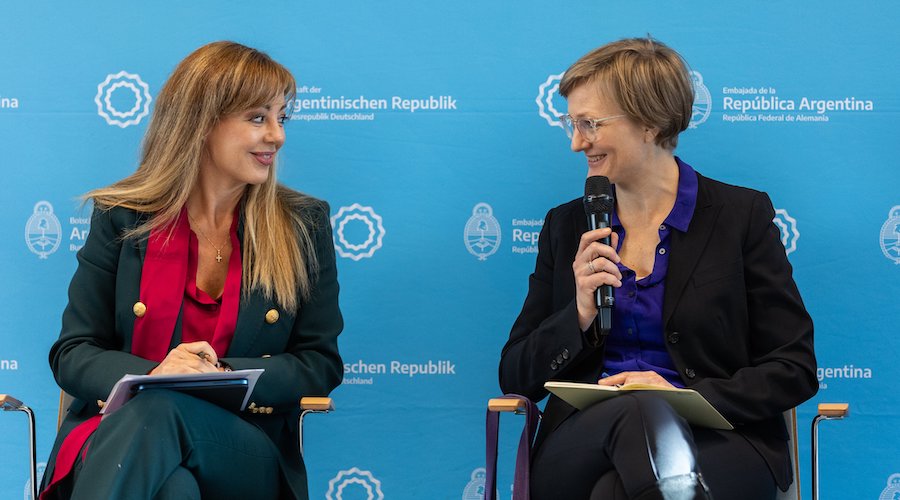Argentinian, German officials meet to discuss critical minerals

Argentina’s Mining Secretary, Flavia Royon, and the governors of the Lithium Table provinces, that is, Jujuy, Catamarca and San Juan, travelled to Germany to promote the country’s critical mineral resources at a conference and through one-on-one meetings with government officials.
The politicians met with representatives from Germany’s Ministry of Foreign Affairs, members of the Economic Affairs Commission of the German Parliament, the Secretary of Commerce, as well as with the director of mineral resources, the director of exports and representatives for the Americas of the German Ministry of Economy and Climate.
“The Argentine delegation, led by the Secretary of Mining and accompanied by the governors, held a fruitful exchange with the 15 deputies from the German Chamber of Deputies’ Economic Affairs Commission. The German representatives showed keen interest in the exploration and production of critical minerals, such as copper and lithium, in Argentine territory,” Royon’s office said in a media statement.
According to the brief, the discussions revolved around the role that Argentina can play in the global energy transition, particularly concerning the EU as the block moves toward supplier diversification.
The Argentinian governors detailed the mineral potential of each of their provinces, with a special focus on the mining projects that employ solar energy, thus fostering processes with low carbon emissions.
“This comprehensive approach reflects the provinces’ commitment to responsible industrial practices and respect for the environment. The domestic mining industry is considered a platform with great potential to be a beneficiary of German financial funds and tools. These funds are designed to meet the most demanding standards of environmental stewardship. Notably, these Argentine provinces considerably exceed these standards,” the release reads.
To strengthen this bilateral collaboration, especially in the energy and mining sectors, the German parliamentarians who met with the Argentinian delegation will visit the South American country in March 2024.
{{ commodity.name }}
{{ post.title }}
{{ post.date }}




Comments